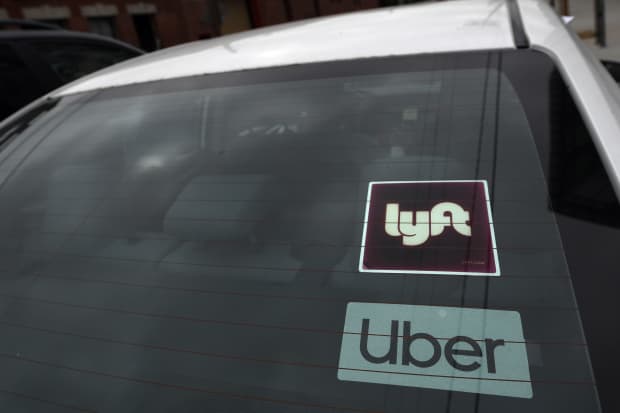This post was originally published on this site

Uber Technologies Inc. and Lyft Inc. must classify their drivers as employees, California judges have ruled.
AFP via Getty Images
Uber Technologies Inc. and Lyft Inc. must classify their drivers in California as employees, a state appeals court ruled Thursday.
Uber UBER, +4.26% and Lyft LYFT, +3.73% had appealed a San Francisco Superior Court judge’s August decision that called for the ride-hailing services to immediately comply with the law, which led to the companies threatening to stop serving their home state. California and the cities of San Francisco, Los Angeles and San Diego won the injunction in a lawsuit seeking to order the companies to comply with a California law that took effect in January.
From August: Uber and Lyft must make drivers employees because California law has ‘overwhelming’ edge, judge says
“We address here whether the trial court abused its discretion in granting a preliminary injunction that restrains Uber and Lyft from classifying their drivers as independent contractors,” Judge Jon B. Streeter wrote on behalf of the three-judge California Court of Appeal panel. “Seeing no legal error, we conclude the trial court acted within its discretion and accordingly affirm the order as issued.”
“This is a victory for the people of California and for every driver who has been denied fair wages, paid sick days and other benefits by these companies,” said San Francisco City Attorney Dennis Herrera in a statement Thursday.
In his statement, California Attorney General Xavier Becerra referred to the unemployment crisis: “Remember, companies like Uber and Lyft… don’t pay into unemployment benefit funds for workers. That means that American taxpayers… are covering the unemployment benefits that gig workers are receiving from the COVID bailout.”
Erica Mighetto, a Lyft driver and worker organizer with Rideshare Drivers United in the Bay Area and Sacramento, said she hopes the court’s decision makes a difference with voters. “With all the Uber and Lyft advertising inundating our screens with deception about Proposition 22, it’s reassuring to know that our courts will not allow the companies to rob workers of basic protections,” she said.
Lyft said Thursday night that it is considering appealing to the California Supreme Court, whose 2018 ruling in a different worker-classification case set in motion the state law that went into effect earlier this year and which the two companies are now being ordered to comply with. Uber is also exploring its appeals options, it said.
“This ruling makes it more urgent than ever for voters to stand with drivers and vote yes on Prop. 22,” said Julie Wood, a spokeswoman for Lyft.
Uber repeated its threat to leave the state, or at least to cut back on its service in California.
“If the voters don’t say yes on Proposition 22, ride-share drivers will be prevented from continuing to work as independent contractors, putting hundreds of thousands of Californians out of work and likely shutting down ride-sharing throughout much of the state,” Uber spokesman Davis White said.
William Gould, professor emeritus at Stanford Law School and a former chairman of the National Labor Relations Board, said Thursday he wasn’t surprised that the appeals court upheld the lower court’s ruling: “These companies have defied the law and seem to willing to do so. I think they have zero chance before the California [Supreme Court].”
The ruling gives Uber and Lyft 30 days to comply after the appeals court follows certain legal procedures, which will likely not occur before the election. The companies have 10 days to appeal to the state Supreme Court, but it’s unclear whether they’ll do so with 12 days until the election, during which they’ll have another chance to avoid classifying drivers as employees. California residents are voting on Proposition 22, which seeks to exempt gig economy companies like Uber, Lyft and delivery services from the state law.
More on Prop. 22: How Uber and Lyft’s business model could be changed on Election Day
The most expensive proposition campaign in California history has raised more than $190 million from its proponents, with Uber ($53.5 million) and Lyft ($48.9 million) the biggest backers. The initiative’s opponents, largely made up of unions, have raised about $16 million.

